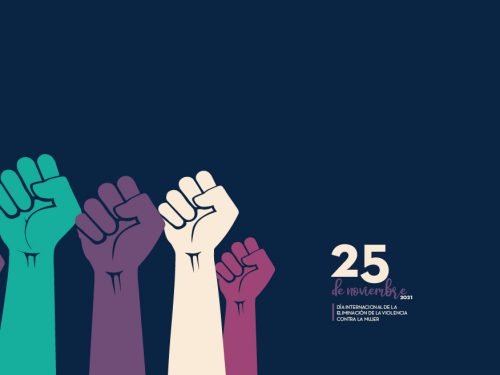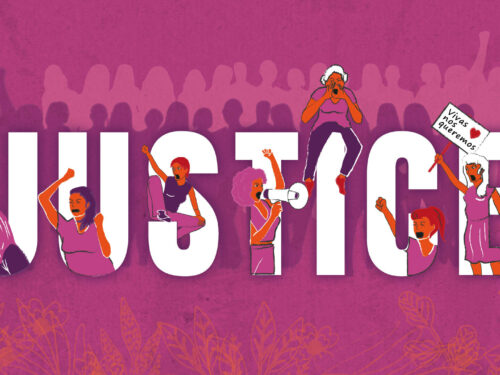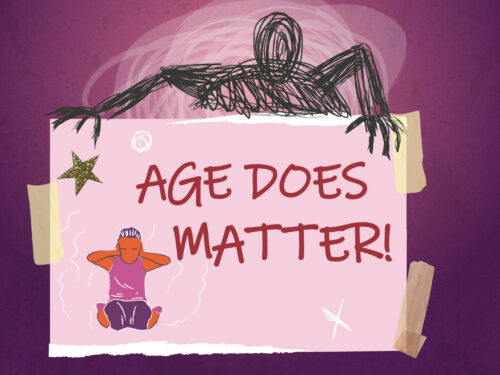
Cristel was exhausted after finishing her day of work, but she still had a four-hour trip ahead of her from San Jose to Cañas, where her family lives. She wanted to sleep as soon as the bus started moving, but things didn’t turn out the way she planned.
“I had to sit next to a guy,” Cristel recalls that terrifying trip in June of 2019.
The guy next to her talked to her constantly. Her responses were always polite even though she had no intention of keeping the conversation going. Even when the interaction ended, Cristel noticed that the guy didn’t take his eyes off of her.
“I turned my face to the aisle, put on a coat that I had with me and tried to sleep again. The man then took advantage of it and put his hand very close to my vulva,” Cristel said.
That was just one of numerous times that Cristel, at age 25, has been sexually assaulted in public spaces. On another occasion, when she was walking to the university, a man rolled down the car window and masturbated in front of her. From whistles and obscene gestures to indecent exposure and touching: harassment in the streets is a reality that women experience every day.
In Costa Rica, 112 women reported sexual harassment in the streets during the second half of 2020, after the street harassment law went into effect in July of that year. Two of the complaints were filed by women in Guanacaste, one of them by a man masturbating in Playas del Coco.
The law penalizes men and women who commit harassment in the street with up to three years in prison.
The low number of complaints in judicial statistics doesn’t reflect reality. According to the Legislative Assembly file from when the law was created, many women don’t legally indicate these acts because they feel afraid regarding their aggressors or because they think that the judicial system can’t do anything for them.
The reality isn’t unique to Costa Rica. Sexual harassment is the main safety risk faced by girls and women around the world, according to more than 21,000 testimonies from women reflected in the report “(Un)safe in Cities” by the organization Plan International.
Psychological effects and the decrease in safety in public places are direct consequences of this type of violence. The streets become a hostile place for women, where they live in fear of suffering from anything from verbal attacks to physical violence.
Insecurity and Psychological Damage
Alone and outside of my home, there’s no way I feel totally safe. Anguish has become commonplace. The situations that I’ve experienced in public places made me see how vulnerable we are as women to the predators that are out there,” said Cristel.
She’s had to maneuver some things to avoid abuse. She limits the places she’s going to go through and even makes a mental map locating safe areas and forbidden areas.
The emotional scars impact her even in privacy
“This year I moved out to live totally alone for the first time and the first nights, I couldn’t sleep because I felt terribly afraid that something would happen to me,” she related.
The Executive Director of the Citizen Association Acceder (Asociación Ciudadana Acceder in Spanish), Laura Valenciano, explained that harassment in the street generates consequences beyond what happens in public places.
Sometimes we believe that the problem of street sexual harassment is only in the act, when in reality it is such a prolonged practice that it has been modifying or even limiting the right to the city, to freedom of movement, ” added Valenciano.
While it’s true that some manifestations of harassment are more visible than others, they all have the common denominator of exercising control over women, their bodies, their freedom and sexuality.
In addition, sexual harassment in public places can be— as in the case of Cristel on the bus— a precursor to other more serious types of abuse, such as physical violence, touching, sexual abuse and even rape.
That’s why Valenciano sees reporting as a key tool to combating street sexual harassment. It makes it possible for the crime to not go unpunished and for there to be an increasingly greater reflection of reality.
Living Without Being Part of the Landscape
Cristel reported what she experienced on the bus by calling 911. The police stopped the bus and the guy was taken to the Las Juntas de Abangares police station.
To take the case to trial, she needed witnesses. “My word and what I experienced didn’t carry much weight without them,” added Cristel, who then decided to drop the case.
Before the law came into force, it was very difficult to prosecute perpetrators, Valenciano commented. “This made justice unattainable,” she emphasized.
Before the law, street sexual harassment cases were understood as minor conflicts that cause minor damage. To punish this type of conduct, those affected had to identify the perpetrator with first and last names. In addition, they had to provide witnesses to what happened.
These requirements made proving injustices against women that happened in the streets complicated and prolonged the processes for filing a complaint.
To Valenciano, the approval of the law against harassment materializes a fight that allows women to have an additional instrument to develop their life projects freely without being violated.
The step that these behaviors are now no longer seen as a contravention [minor conflict that causes minor damage] but as a crime is important in creating a collective awareness to make our streets a safer place,” she commented.
Looking Towards Change
Cristel believes that living in dignified and equal conditions means that everyone should be treated as human beings and in this way be seen beyond gender.
Street sexual harassment is just one type of violence that is a symptom of something much bigger: patriarchy, which dictates how power is distributed between the sexes in our society.
“Although we have been saying that [street sexual harassment] is something culturally accepted, a little modification of those cultures has to do with the educational places in which we find ourselves,” Valenciano stressed.
Especially education based on human rights and with a gender focus, so that we don’t think that sexual harassment is something natural and something positive ever again,” the expert emphasized.
For Cristel, talking about what happened to her and what continues happening to her and hundreds of women is necessary to wager that no one else will dare to violate someone in that way.
“Only by raising awareness in society will women be able to leave their homes without having to worry about their physical and emotional integrity,” Cristel believes.
Journalist’s note: Cristel preferred to withhold her last name to protect her identity.







Comments